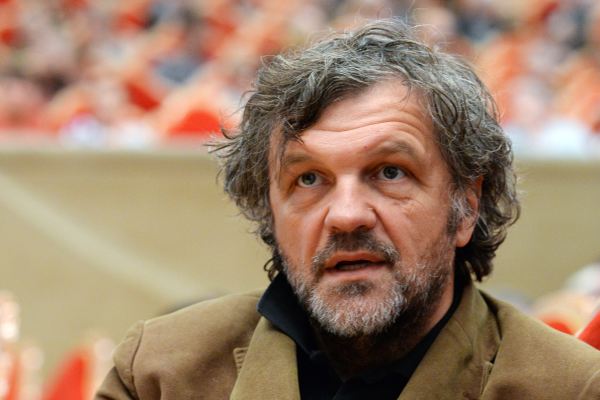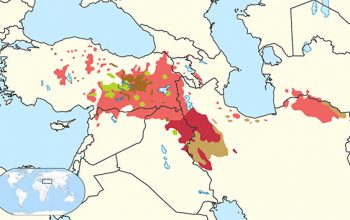
Shanti Jayasekara, PhD, Grand PhD
When somebody asks him who he is and where he comes from, he says that he is nobody and comes from nowhere. His name is Emir Kusturica, also known as «the Fellini of the Balkans» and «Gypsy Tarantino». While Kusturica considers himself to be a man from the past, critics reckon the film director among the cinema of the future.
He is Muslim and was born in Sarajevo, but he is ethnic Serbian. He calls himself Yugoslav, Emir of the non-existing land (Emir is an Arabian name that means «master», «the ruler of the kingdom»).
The films by Kusturica, which were shot before the collapse of Yugoslavia, predicted the inevitability of outburst. Yugoslav cinema had been in the grip of «guerilla pathos» for many years, but still it produced some masterpieces of the military theme.
Following the Soviet cinema of the period of «thaw», innovations in Polish, Hungarian and Yugoslav cinema took place. Kusturica was studying at the department of directing at the Prague Academy after the breakdown of the Prague Spring.
-his first film «Guernica» (thesis project) won a prize at Student’s Film Festival in Karlovy Vary. Critics had already noted that the films by Emir Kusturica didn’t have any illusions of the 60s and didn’t reflect disappointed hopes. The young director’s films easily won the prizes, which Tarkovsky and Besson dreamt about. He is one of the few filmmakers in the world, who won the two awards – Golden Palms Cannes Film Festival not for long-term service, but being still young. (In 1985 for the film «When Father Was Away on Business» and in 1995 for the film «Underground»)
Successfully combining religious exotics and folklore, of which people beyond the Balkans had vague view, Kusturica impressed his audience with ethnical identity of national life and inner nobleness of the poor.
– His second film «The Brides Are Coming» was prohibited for moral reasons. So, on the one hand, Kusturica became famous and won a lot of prizes, but, on the other hand, the government disapproved of him. Emir Kusturica reciprocated this attitude and used to say: «These people have been playing at petty politics all their life. Yesterday they were ultra-left, today they are shirakists and tomorrow they are someone else. It was they who formed Yugoslavia after World War I, and it was they who ruined it». It seemed strange to Kusturica why the West, which advocates the multicultural world, supported the collapse of Yugoslavia – the only multicultural country in the Balkans? In his film «Underground» he answers this question and provides a clear explanation for his position. Critics called this film a real boom. A brilliant tragicomic entanglement (bombardment of the Zoo), an endless chain of the baroque images, which sometimes go beyond the border of poor taste, but inexhaustible inventiveness and pervasive erotism intoxicate a viewer better than strong brandy.
Europe accepted such esthetic chaos, but, at the same time, it caused fear of this happy sadism and inexhaustible energy, which looked great on the screen, but less attractive in the chain of endless Balkan conflicts. In the film a war lasts half a century. Tito’s functionaries convinced the residents of the underground of the continuing World War II. When «prisoners» escaped, they found that the war in the Balkans was still going on, but this time it was Yugoslav Civil War. «A war is not a war until a brother kills a brother» – this is the main idea of the film «Underground» by Emir Kusturica.
Kusturica brought fresh blood to the decrepit veins of the cinema and became the living classic of the global European style in his new, post – modernistic variant. Hardly had he turned 40, when he became one of the most highly-acclaimed film directors.
His gypsy theme
In 1989 in Cannes Kusturica presented his film «Time of Gypsies», where identity of national life was shown from the different angle. The Yugoslav film director revealed that gypsies have some kind of aesthetics, which is very close to absolute kitsch.
The film director grew up next to the Roma community, and he received the first life lessons of friendship and freedom from gypsies. He felt that these poor but free people are noble inside. Gypsies can steal, kill, rape but their way of living is still different. «Money, love and family- that’s everything that only matters for gypsies. That’s it. Never anything extra. » – says Kusturica about gypsies.
The film «Time of Gypsies» («Home for hanging») is about a destiny of a young gypsy, who has come a long way from poverty to fabulous wealth and from spirituality to the loss of moral values. «Time of the gypsies» is purely tragic: for the first time we see an inverted figure of the Christ, the symbol of Yugoslavia, which was left by God.
The next films by Emir Kusturica became more optimistic. For a small project called Music-acrobatics for the German television Kusturica had to tell about gypsy music, but the idea ended up with the film «Black cat, White cat»
The film director didn’t conceal that he was escaping from the gruesome world of politics to the utopia of happiness, to the familiar «time of gypsies». While «Time of Gypsies» is an outstanding ethnographic fresco and «Underground» is an outstanding tragicomedy of Yugoslav modern history, «Black cat, White cat» – is an outstanding ode to kitsch and happiness. Love, drugs, delicious food, wedding near the house, where two living corpses are lying, a black cat, a white cat… «In this film even the dead come alive. By making this film I get rid of tragedies and admire everything natural».-says Kusturica. At Venice Film Festival «Black cat, White cat» won Special Jury Prize for Best Director. But the film received recognition among spectators, who gave Kusturica a standing ovation.
His animals theme
In the films by Kusturica even animals had a role of a great importance: to the point of sometimes naming a film in honor of cats. Dogs, goats, monkeys and even elephants «play roles» in his films. In the film «Time of Gypsies» a turkey can execute orders, in «Black cat, White cat» – a pig eats the paneling of «Trabant». In the first scene of «Underground» bombs are dropped on the Zoo, and animals, overwhelmed with survival instinct, escape to the city. And how comical was the moment, when during the bombardment of the city one of the main characters was polishing his smart lacquered boots with the cat he accidentally saw. «There is some magnetism in animals. They exist between our past and present», -says Kusturica.
His music theme
The music to Kustunica’s films wrote his composer – Goran Bregovic. However, Kusturica didn’t share fame with him and they had to stop working together. It had an impact on music partition of Kustunica’s latest films. It became less inspired, repeating old themes.
From easy hand of internationally acclaimed film director of the legendary films «Underground», «Black cat, White cat», «Life is a Miracle», Emir Kusturica, fashion of Balkan music appeared. Balkan music, which Kusturica used in his films, is a melodious cocktail of gypsy, Serbian and Turkish rhythms «flavored» with rock-n-roll.
His orchestra
Kusturica – rock star is known not less than Kusturica-film director. He was a bass guitarist of Sarajevo rock group called «Zabranjeno Pušenje» («Smoking forbidden»). Life wasn’t a bed of roses for the young musicians: the first repetitions took place in the cellar and the musicians didn’t have enough money for the instruments. After the group’s breakup Emir created a new group called «The No Smoking Orchestra». It became famous immediately: for the first time the music of «The No Smoking Orchestra» sounded in the film «Black cat, White cat», and after that it gained popularity all over the world. In 2014 Emir Kusturica and his group took part in Winter International Arts Festival in Sochi.
His films and awards
– 1981 – Do You Remember Dolly Bell? – Golden Lion, Venice
– 1985 – When Father Was Away On Business, Golden Palm Cannes Film Festival
– 1989 – Time of Gypsies – Best Director award at Cannes Film Festival
– 1993 – Arizona Dream – Silver Bear – Special Jury Prize at the Berlin Film Festival
– 1995 – Underground – Golden Palm Cannes Film Festival
– 1995 – Underground – Lumiere Awards, France
– 1997 – Underground – Kinema Junpo Awards, Japan
– 1998 – Black cat, White cat – Silver Lion, Little Golden Lion and Laterna Magika Prize, Venice
– 2001 – Super 8 Stories – Silver Plate of best documentary at Chicago International Film Festival
– 2004 – Life is a Miracle – Cinema Prize of the French Education System at Cannes Festival
– 2005 – Life is a Miracle – Best European Union Film at César Awards, France
– 2005- Life is a Miracle – Best Balkan Film at Sofia Film Festival
Emir Kusturica has been wandering around the world all his entire life: he lived in Czechoslovakia and in America, where he taught directing at Colombia University. Now he lives in Paris, but he prefers to speak English only. However, he has his motherland. This is a marvelous country, where people perform noble deeds, have fun and deeply love each other. And the main thing – they don’t die (but if they do – it serves them right). This is life, and Kusturica is its best artist.


